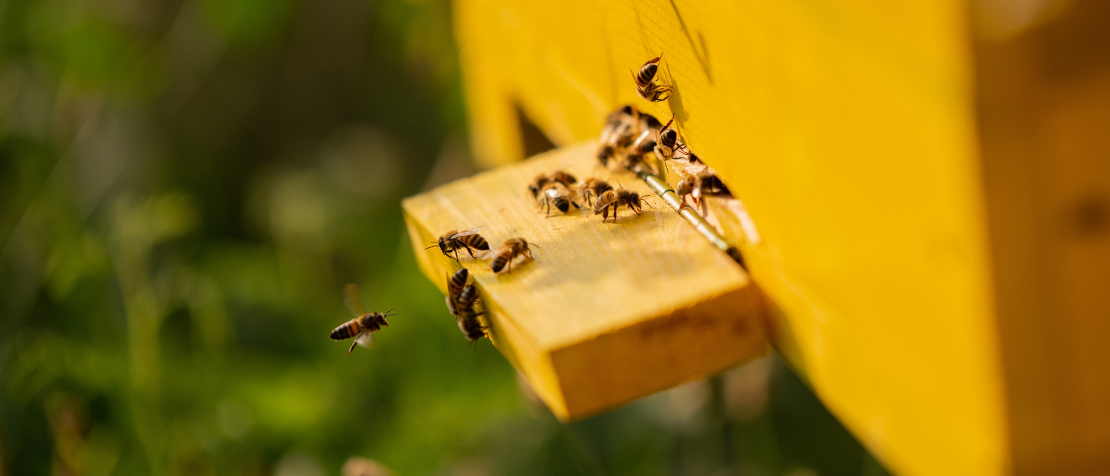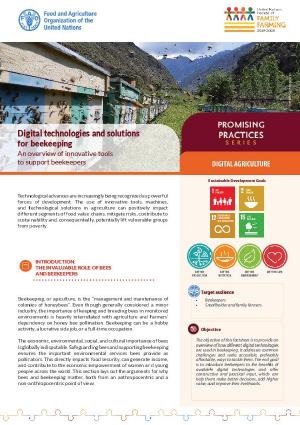New digital technologies boost beekeeping for smallholder farmers and family beekeepers

©FAO/Javid Gurbanov
Beekeeping, or apiculture, is not just a hobby or a side job – it is a vital agricultural activity and essential for food security and biodiversity. Beekeepers, often smallholder or family farmers, play a crucial role in sustaining ecosystems through pollination and ensuring the health of countless crops.
Today on World Bee Day, we all have an opportunity – whether we work for governments, organizations or civil society or are concerned private citizens – to promote actions that will protect and enhance pollinators and their habitats, improve their abundance and diversity, and support the sustainable development of beekeeping.
Developed by the Food and Agriculture Organization of the United Nations (FAO), the publication Digital technologies and solutions for beekeeping explores how innovative technologies are helping support this vital practice, boosting productivity and complementing the deep-rooted expertise, knowledge and skills of beekeepers.
Smallholder farmer beekeepers typically manage between 50 and 100 honey bee colonies. They are integral to rural economies, providing essential pollination services that support crop yields and biodiversity. The publication emphasizes that beekeepers, whether they manage a few hives or hundreds, are recognized as smallholder or family farmers whose contributions are vital to sustainable agriculture.
Beekeeping experts from the public and private sectors, academia, and civil society reviewed and validated the innovations presented in the publication, focusing on whether the solutions presented are smallholder-friendly.
Designed to complement the traditional knowledge of beekeepers, the innovations help beekeepers save time, stay well informed, and respond quickly to potential issues. Tools such as electronic hive scales and record-keeping applications provide real-time data and insights, that lead to improved decision-making and hive management.
Digital technologies do not aim to replace the expertise of beekeepers. Instead, they serve as valuable aids that streamline beekeeping. For instance, electronic hive scales allow beekeepers to monitor hive weight remotely, reducing the need for frequent physical checks. Record-keeping apps help track hive health, honey production, and other critical metrics, ensuring beekeepers are always informed and prepared.
These tools serve to complement the knowledge and know-how of beekeepers and researchers, and do not intend to substitute human values. However, their role in the beekeeping industry is significant, offering practical, everyday benefits to individual beekeepers.
On one hand, simple, cost-effective, easy-to-use solutions – such as electronic hive scales – can streamline individual beekeepers’ work, reducing the time and expense of frequent apiary visits for colony monitoring. On the other hand, economic feasibility remains a key consideration for some solutions.
The publication is available in English, French, Russian, Spanish, and Uzbek languages.

